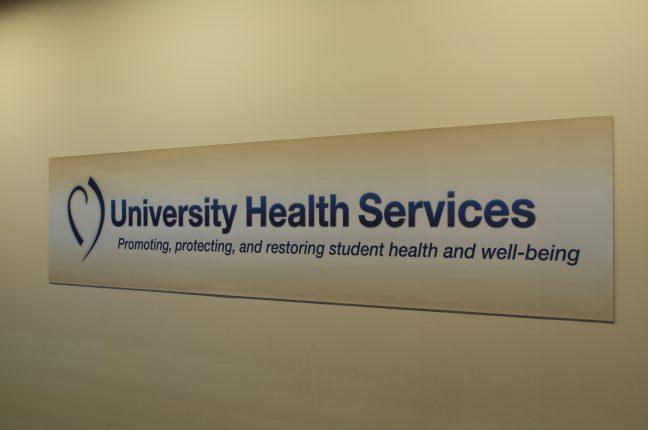CONTENT WARNING: Discussion of sexual assault. If you have been sexually assaulted, or are not sure, there are several ways to get support. View options on campus through University Health Services.
As “Halloweekend” festivities begin at the University of Wisconsin, the combination of costumes and alcohol makes it necessary for students to take extra safety precautions, according to a UW press release.
Halloween falls squarely within the “Red Zone,” a period between August and November infamous for its high rates of sexual assault. Around half of all sexual violence-related incidents on college campuses occur during these months, according to the Rape, Abuse and Incest National Network.
Just because someone at a bar or party is wearing a revealing costume, does not mean they are interested in hooking up, University Health Services Violence Prevention Program Manager Nola Pastor said.
Fifty-five percentage of men believe that the more revealing the clothes a woman wears, the more likely it is that she will be harassed or assaulted, according to a survey conducted by The Independent.
“We need to make sure things like alcohol or the kind of social atmosphere of Halloween events don’t become excuses for crossing boundaries,” Pastor said.
Alcohol use tends to be higher in college students compared to non-college youth, according to BestColleges.
Among adults, 18-34 year olds celebrate Halloween at the highest rate and alcohol is frequently associated with these celebrations, according to ABC News 10.
The involvement of alcohol increases the rate of sexual assault, with at least 50% of student sexual assaults involving alcohol and one-third of perpetrators being intoxicated at the time of the assault, according to American Addiction Centers.
UW has a strong work-hard, party-hard culture, which leads to students using alcohol as a way to release stress, Pastor said.
It is significantly easier to cross people’s boundaries when they are incapacitated, and the UW community needs to find avenues to release stress that aren’t at the expense of anyone else, Pastor said.
Pastor also spoke about the importance of understanding the definition of consent, saying that the basic understanding that most people have of consent can fall short.
“Often we think about consent as permission to do something physical or intimate or sexual with somebody, and that is a place to start,” Pastor said. “But I really like to think about consent as a practice of communication that’s about remembering other people’s humanity.”
Sexual intimacy involves a high amount of vulnerability that students are often ill-prepared for societally, so it is important to consistently check in with yourself and your partner about what you both are comfortable with, Pastor said.
UHS provides free confidential support for victims of sexual assault, sexual harassment, domestic violence, sexual exploitation and stalking through their Survivor Services program. UHS also offers advocacy, mental health assistance and medical support including forensic nurse exams, according to their website.
In addition to individual counseling services, UHS offers trauma-informed support groups organized and provided by UHS mental health professionals, according to their website.
All UHS Survivor Services are confidential, meaning that no information disclosed by survivors will be shared with anyone — including parents, campus authorities and law enforcement — unless the student gives explicit permission to do so, according to the UHS Privacy and Patient Rights page.
UHS offers ActWIse bystander intervention services, a program aimed towards supporting community members in developing the motivation, skills and confidence to intervene in potentially harmful situations.
“I like to think of bystander intervention as taking community responsibility for keeping everybody safe and making sure people are being respected and holding each other accountable,” Pastor said. “I think this is especially important in our own social circles.”
To practice effective bystander intervention, one must be aware of their surroundings and commit to checking in if they feel someone is being targeted, Pastor said.
ActWIse workshops emphasize introspection and group discussions to help participants develop the skills necessary for campus safety. These skills include identifying warning signs of violence and intervening in safe, survivor-centered ways, according to UHS.
“It’s on all of us to help create environments where people don’t have to work hard and party hard at such extremes,” Pastor said. “We hope to create more human centered, consent oriented environments so we can pursue fun, but still be kind, self aware and intentional.”
Resources regarding sexual assault:
- UHS Survivor Services provides confidential, no-cost victim advocacy, mental health and/or medical support, including
forensic nurse exams available onsite at UHS: survivorservices@uhs.wisc.edu; 608-265-5600 (option 3); or self-schedule using the MyUHS app - UHS Survivor Services Crafty Coping and drop-in survivor
support groups - RCC: Sexual Violence Resource Center: (608)-251-7273
- Let’s Talk: uhs.wisc.edu/wellness/lets-talk
- Room to be Safe: For Queer survivors of violence: (414) 856-LGBT (5428)
- National Sexual Assault Hotline: 1-800-656-HOPE (4673)
- To report an incident to law enforcement, contact UWPD at 608-264-2677.
- To report a concern to the university, contact the Sexual Misconduct Resource and Response Program at https://go.wisc.edu/report
- National Domestic Violence Hotline: 1-800-799-SAFE (7233) or 1-800-787-3224


